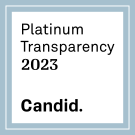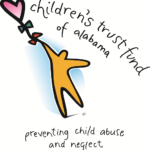The first time I got in trouble as a result of my addiction was when I failed a drug test in high school. On the outside, I was a straight-A student, an athlete, and a well-rounded teenager. On the inside, I was depressed, struggling with trauma, and abusing drugs and alcohol.
When I failed this drug test it was a shock to everyone – the principal whom I was the assistant to, my varsity basketball coach, who was preparing our team for the playoffs, and my parents, who always enjoyed bragging about how intelligent their daughter was.
It is not that I was not a smart, talented athlete. I have always been book smart, hard-working, and dedicated to whatever I set my mind to. Just because I struggled with addiction does not mean I was not any of those things underneath my addiction. Still, I did not want people to know I was an addict, because I wanted to maintain the image of the perfect daughter, student, athlete, and friend.
You see, many people criminalize, demonize, and even dehumanize addiction and alcoholism – and people who abuse substances know this. As the principal’s assistant, I knew that he would bring me into his office, ask me to call my parents, and make me complete a substance abuse education class. As my parent’s daughter, I knew that they would be disappointed, and likely take away any ounce of freedom that I had at 17 years old. I knew my school’s policy regarding drug tests and extracurriculars – if you fail a drug test, then you cannot participate in your extracurriculars.
As soon as I started missing basketball practice and games, people knew something was up. I lived in a small town at the time, and the news that I was using drugs spread like wildfire. I quickly felt ashamed, embarrassed, and guilty all at the same time.
Of course, none of that stopped me from using drugs. The way I knew society was viewing me and my drug use only made me want to hide my drug use even more. In fact, my addiction progressed for five more years until I finally reached out for help. In that five years, I did a great deal of unnecessary harm that could have been prevented if only I had been willing to ask for help. Instead, I was more obsessed with maintaining the facade that everything was okay.
Unfortunately, my story is not unique. People who struggle with addiction face stigma each and every day, and many of them suffer in silence. That is exactly why stigma is so harmful – it stops people from being willing to ask for the help they need.
What is Stigma?
Stigma refers to discrimination and/or negative attitudes towards someone (or a group of people) based on a mental health condition, health condition, disability, and more. Even certain cultures, religions, races, sexualities, and gender identities can have stigmas surrounding them.
Some examples of how addiction and other mental health conditions are stigmatized include:
● Depicting all alcoholics as poor, homeless, reckless, or dysfunctional
● Perpetuating stereotypes of people with mental illness
● Making uneducated assumptions like “people who use drugs are bad people” or “they should just snap out of it”
● Referring to people who use drugs as “junkies”
● Media depictions that either make fun of people with mental illness or make the person with mental illness the villain of the storyline
● Sayings like, “once an addict, always an addict”
Studies have found that, although the quality and success of mental health treatments have improved over the last 50 years, people with mental health conditions are often stigmatized. Furthermore, researchers have found that stigma isolates people, delays treatment, and causes a great social and economic burden. It can also reduce the chances of a person receiving adequate care and having strong support.[1]
When it comes to drugs and alcohol, addiction is often a life-or-death situation. Obtaining treatment now rather than later can mean the difference between living a healthy life or facing a fatal overdose. The bottom line is that there is nothing good that comes from stigma – it only harms people, who may be capable of getting sober and leading a fulfilling, successful life.
How You Can Break the Stigma of AddictionThere are several ways to work towards breaking the stigma of addiction. I believe that one of the most important steps anyone should take to address stigma is to ask themselves what personal stigmas they are holding onto.
As humans, we all have certain ideas, beliefs, and prejudices. While I was self-aware of the societal stigma surrounding addiction, I also had my own self-perceived stigmas. I did not know I was struggling with depression, and I did not recognize that the emotions I was trying to bury were stemming from trauma. I certainly did not know that the reason I could not stop using drugs is that I had no other way to cope. Instead, I saw myself as weak. I thought, “I should be able to just stop.” This was a stigma that I had to get rid of and accept. I had to learn that I was an addict, and I could not just stop – I had to ask for help.
After you begin to recognize and overcome your own self-perceived stigmas, you can begin to combat societal stigma. Some steps you can take include:

● Educate yourself – If you do not suffer from addiction or alcoholism yourself, go to an Al-Anon meeting or go to an open AA/NA meeting with your loved one. Open your ears and try to learn about the experiences of people, who suffer from addiction, before you make any assumptions based on your previously learned beliefs. Start trying to view addiction and alcoholism as a disease or a mental illness rather than a moral failing.
● Share your experiences – The best way to break the stigma is to keep talking and sharing your experiences. Whether you have overcome addiction or have a loved one who is an addict, getting vulnerable with other people about the things you have gone through, the truth about addiction, and the recovery process can help other people begin viewing addiction in a different light.
● Actively speak out against stigma – If you hear someone using stigmatizing language or making harmful judgments about someone who is battling addiction, take it as an opportunity to stand up for that individual and try to educate the other person about addiction. Acting as an advocate and an ally can help other people overcome their challenges. Keep reminding others that people, who use drugs, are sick and need treatment – they are not bad people.
● Join a support group – If you are personally facing stigma, the best way to cope with it is to find a support group of like-minded people, who understand what you are going through. These people will be able to relate to you, sympathize with you, and offer you personal advice.
Studies that looked at how to combat the stigma of mental health found that the more the general public is exposed to people with severe mental illness, the fewer stigmas they may have.[2] People are scared of, or unsure of, things that they do not quite understand, and addiction is still one of those things that many people do not fully understand.
With that said, one of the best ways to combat stigma is to keep talking about personal experiences with addiction, treatment, and recovery. The more society is exposed to these things in the media and on a personal basis, the less societal and self-perceived stigma will exist.
To read more about Stigma from a previous post, check out “The State of Stigma.”
About the Author
After struggling with substance abuse for nearly 7 years, Cassidy got sober in the summer of 2017. Her personal experience with addiction, treatment, and sobriety brings valuable insight into what it’s really like to be in recovery. By writing about her journey, she hopes to spread awareness, fight the stigma, and help people who are suffering from addiction find a way out.
References:
1. https://www.msmonographs.org/article.asp?issn=0973-1229;year=2012;volume=10;issue=1;spage=70;epage=84;aulast=Shrivastava
2. https://www.ncbi.nlm.nih.gov/pmc/articles/PMC1489832/








